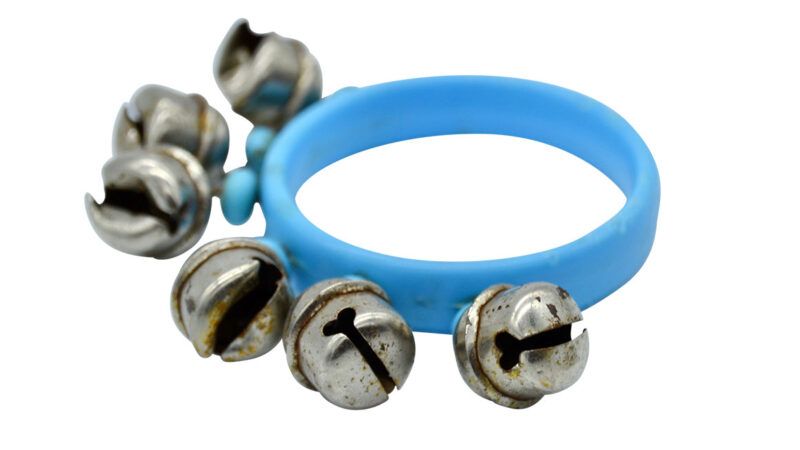A Judge Says Shaken-Baby Cases Rely on 'Junk Science'
The pediatric neurosurgeon who first popularized shaken-baby syndrome has doubts about how it is used in courtrooms today.

After his 11-month-old son showed signs of neurological damage in 2017, Darryl Nieves was charged with aggravated assault and endangering the welfare of a child. The indictment alleged that Nieves had injured the toddler, who was born prematurely with severe medical problems, by violently shaking him—an example of "abusive head trauma" (AHT), a.k.a. "shaken baby syndrome." But earlier this year, the judge presiding over Nieves' trial expressed appropriate skepticism about the very concept of AHT, which has been crucial in many dubious child abuse cases.
In a January 7 decision, New Jersey Superior Court Judge Pedro J. Jimenez Jr. barred testimony from AHT experts, saying the diagnosis is "akin to 'junk science.'" Jimenez is one of many critics who have questioned the reliability of shaken-baby convictions.
Child abuse specialists identify suspected AHT cases by a "triad" of symptoms: bleeding in the brain, bleeding in the eyes, and neurological impairment. But as Jimenez explained, that diagnosis is not supported by a scientific consensus, and even the pediatric neurosurgeon who first popularized it in 1971 has doubts about how it is used in courtrooms today.
"There is no proof provided that AHT is, in fact, a valid diagnosis explaining an inflicted trauma which causes a pathology," Jimenez wrote. "Instead, what the literature and testimony have clearly shown is that AHT is an assumption packaged as a medical diagnosis, unsupported by any medical or scientific testing." It is nevertheless "proffered in cases like this one as proof beyond a reasonable doubt as to the cause of the infant's injuries."
Despite its speculative foundation, Jimenez said, AHT has been used to bolster a "highly prejudicial" accusation. That prejudice can be disastrous for defendants.
Since 1989, according to the National Registry of Exonerations, 26 people convicted based on AHT evidence have been exonerated. Last October, Kim Hoover-Moore was released from an Ohio prison 17 years after she was wrongly convicted, based on AHT evidence, of killing a baby in her care.
Meanwhile, Robert Roberson is sitting on death row in Texas after being convicted of murdering his 2-year-old daughter by shaking and beating her. In briefs filed with the Texas Court of Criminal Appeals in April, forensics experts and three exonerees wrongly convicted of murder based on AHT diagnoses argue that Roberson's conviction should be overturned. While AHT "is presented as a medical 'diagnosis,'" the exonerees say, "it is really nothing of the kind."
This article originally appeared in print under the headline "A Judge Says Shaken-Baby Cases Rely on 'Junk Science'."


Show Comments (38)